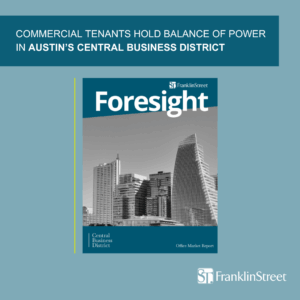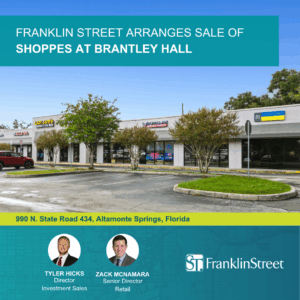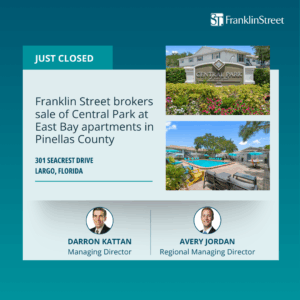Excerpted from October 2018 issue of Southeastern Real Estate Business.
If we had to sum up the 2018 Atlanta retail environment with a single word, it would be “change.” Atlanta’s builders have turned away from the traditional suburban models in favor of modern mixed-use developments featuring high-end office and residential units on the upper floors, along with street-level retail shops. Many planners see such projects as a means of creating more walkable, safe and vibrant neighborhoods.
Retailers are drawn to intown opportunities such as Modera by Mill Creek’s mixed-use apartment communities (existing locations in Midtown, Sandy Springs and Vinings, with Reynoldstown coming soon), or Revel, a planned $900 million, 118-acre mixed-use and entertainment destination being developed by North American Properties in Duluth in Gwinnett County.
With a limited supply of real estate inventory for shops and restaurants and the continued demand from new concepts entering or growing in the Atlanta metro market, the competition for space has grown fierce.
For example, Franklin Street’s client City Barbeque waited 18 months for a premier location to become available for its new eatery in Johns Creek. The restaurant group made a lease agreement offer within three days of the prior tenant going dark to secure the spot before other bidders could jump in.
Many other expanding retailers with aggressive growth plans focused on Class A, core retail markets have been forced to look in alternative Class B and C quality retail corridors as supply has become very limited.
The recent mixed-development surge has had the most dramatic impact on Atlanta’s retail scene. At the same time, leasing rates continued to increase in high-demand retail corridors this year. In some cases, Class A rents have increased above $50 per square feet in suburban markets.
Retailers also face other high barriers of entry for Class A locations inside of Interstate 285, known locally as the perimeter. Meanwhile, Class B and C rents have remained flat over the past year. We expect prices to remain the same in 2019 as the cost of new development land and construction continue to push pricing to alltime highs.
High Demand for Medical
Atlanta’s primary retail corridors have experienced a large infiltration of new medical office users in recent years. Urgent care centers, chiropractors, dentists and other health specialists are finding success targeting these primary retail corridors due to the high traffic counts, great visibility and access these corridors provide. Health-related chains such as Aspen Dental are popular with landlords because they require less parking than traditional retail or restaurant users, and, once the client base is established, have the potential to be a long-term tenant that is resistant to any coming recession.
Bank Closings Create Space
Bank sector consolidation has created a flood of prime corner retail opportunities in Atlanta’s intown and suburban markets. Many national and regional banks have increased their online services and shuttered local branches to cut costs while leaving behind empty buildings along busy retail corridors.
Those highly sought-after locations are being backfilled by a variety of medical and restaurant users.
Reusing Big-Box Stores
Big boxes formerly occupied by retailers such as Toys ‘R’ Us and Sports Authority are quickly being backfilled by emerging entertainment concepts like indoor trampoline parks, inflatable parks and family fun centers. Landlords appreciate how these new tenants bring all-day foot traffic and more families to their centers.
Meanwhile, big box retailers like Target, Kohl’s and Best Buy are reducing their store footprint, boosting online sales and introducing curbside pickup service and a better online platform to compete with Amazon.
Experiential Retail Stays Hot
The experiential retail trend continues to gain steam as more retailers aim to drive customer traffic into their physical stores by providing unique, in-store activities that cannot be replicated online. For example, Ulta Beauty features on-site salons, where customers can get one-on-one style consultations and try on cosmetics, fragrances and haircare products.
Likewise, Microsoft Store locations offer gaming and virtual reality stations so shoppers can experience Microsoft products firsthand.
Bob Kane is a Director with Franklin Street’s Retail Tenant Leasing team in Atlanta offering program roll-out strategies, site selection, market analysis and lease/purchase negotiations for national and regional retailers and restaurant groups expanding throughout the Southeast. During his career, Mr. Kane has provided brokerage, development and consulting services to some of the nation’s largest retailers including: Home Depot, Kohl’s, Longhorn Steakhouse, McDonald’s, Aldi, Lowe’s and more. He can be reached at [email protected]
Sam Krueger is a Senior Associate with Franklin Street’s Retail Landlord Leasing team in Atlanta focusing on landlord representation for clients in the Georgia market. His expertise includes: strategic marketing, market analysis, site selection, and executing retail leasing transactions. He can be reached at [email protected].



